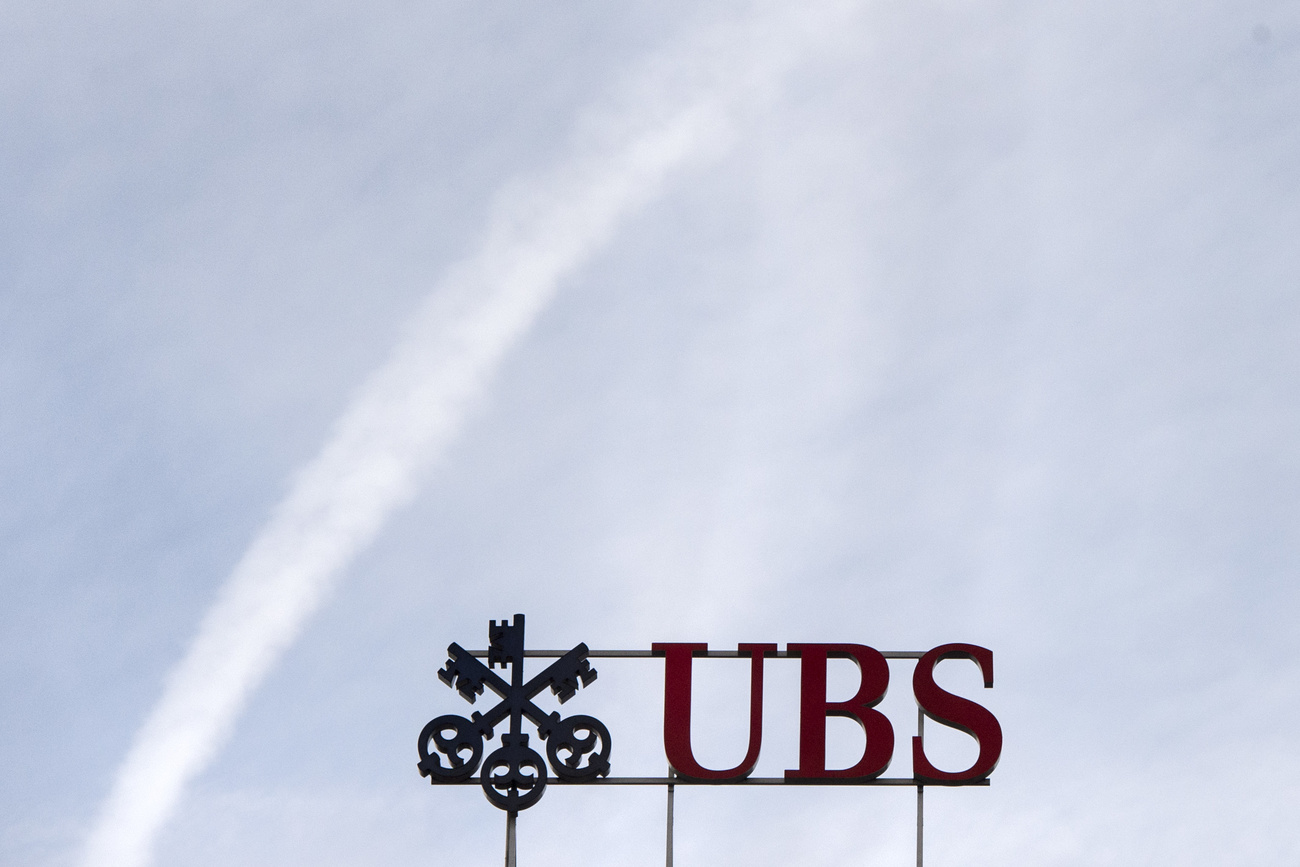UBS can’t claim victory yet in French tax evasion dispute

The French Supreme Court has rejected a €1.8 billion (CHF1.7 billion) financial penalty imposed on UBS but upheld a previous verdict that the Swiss bank illegally helped French citizens evade taxes. Where does that leave UBS?
Wednesday’s Supreme Court ruling means the decade-long legal dispute between France and UBS will roll over into yet another court hearing.
UBS was initially hit with a €4.5 billion penalty in 2019, which was reduced to €1.8 billion on appeal two years later. The Paris Appeal Court will now have to reconsider this sum once again.
SWI swissinfo.ch examines what this means for UBS, which is currently preoccupied with the complicated task of swallowing its former rival bank Credit Suisse.
Is there a clear victor?
UBS only achieved a partial win and failed in its main goal of overturning a criminal conviction for aiding and abetting tax evaders.
Besides reputational damage, a criminal record could result in the loss of its bank license in France. Having said that, Credit Suisse was allowed to operate in the United States even after admitting to similar criminal activity in 2014.
“It is clearly a victory for UBS,” Swiss law professor Peter V. Kunz told Swiss public broadcaster SRF. “We don’t yet know how big the victory is.”
That’s because it’s impossible to say how the next French court hearing will recalculate the financial penalty. It could theoretically be raised but most legal commentators believe it is more likely to be reduced. UBS has €1.1 billion set aside to cover possible damages.
But Switzerland’s largest bank is not speaking of total triumph. “While UBS is pleased that the highest court in France agrees with its position on these important aspects of the legal case, UBS is disappointed that the French Supreme Court has confirmed the previous court decision regarding unlawful client solicitation and aggravated laundering of the proceeds of tax fraud,” it stated.
Is a prolonged legal case good for UBS?
UBS is currently undertaking a huge restructuring programme after agreeing to buy its ailing rival, Credit Suisse, in an emergency fire-sale in March.
The complicated process of fusing two major international banks could take years to finally complete. It is an extremely demanding operation that cannot afford to fail for the health of the Swiss financial sector.
The ongoing case in France “creates uncertainty, which UBS could do without at the moment given the difficult integration of CS,” states the Tages Anzeiger newspaper.
The epic French proceedings officially started in 2013 when UBS France was put under formal investigation. The bank decided at the outset to fight to the bitter end in the French courts rather than negotiate a compromise exit.
Wednesday’s French Supreme Court ruling was the result of a second appeal by UBS, launched in December 2021, when it had no idea that it would later be buying Credit Suisse.
Is this a legal or political fight?
As far back as 2014, UBS questioned French motives behind its tax evasion prosecution. “It is not acceptable to us that this has become a highly politicised process,” the bank said at the time. Large swathes of the Swiss media agreed.
The backdrop to the consternation was a global crackdown on tax evasion and embarrassing allegations that former French budget minister Jérôme Cahuzac had evaded taxes in secret Swiss bank accounts. In 2016, Cahuzac was jailed for tax evasion in France.
UBS now refrains from repeating allegations of political interference. But the theme has recently resurfaced from an unlikely source: former UBS employee Stéphanie Gibaud, whose whistleblowing testimony helped France construct its case against the bank.
Gibaud expected compensation from the French state for her whistleblowing services but was angered to find her request denied. Earlier this month, she described the French action against her former bank as a “farce” and “hypocrisy”.
“The [French] authority’s fight against tax evasion was a pure masquerade” to divert attention away from a scandal involving political party financing, she told the NZZ am Sonntag newspaper.
“It took me years to find out how the French state orchestrated its attacks against UBS in order to destabilise the bank.”
What next for UBS?
UBS lawyers are now working overtime to deal with its own legacy legal cases, to complete the merger with Credit Suisse, and take on a new caseload of files inherited from its former rival.
They managed to settle one outstanding Credit Suisse case, relating to fraud in Mozambique. But a $17 billion (CHF15 billion) Credit Suisse bond write-off when the takeover was rushed through in March has also thrown up a series of new legal complaints.
On top of this, the ongoing tax evasion court case in France adds extra workload to UBS’s beleaguered lawyers.

In compliance with the JTI standards
More: SWI swissinfo.ch certified by the Journalism Trust Initiative












You can find an overview of ongoing debates with our journalists here . Please join us!
If you want to start a conversation about a topic raised in this article or want to report factual errors, email us at english@swissinfo.ch.